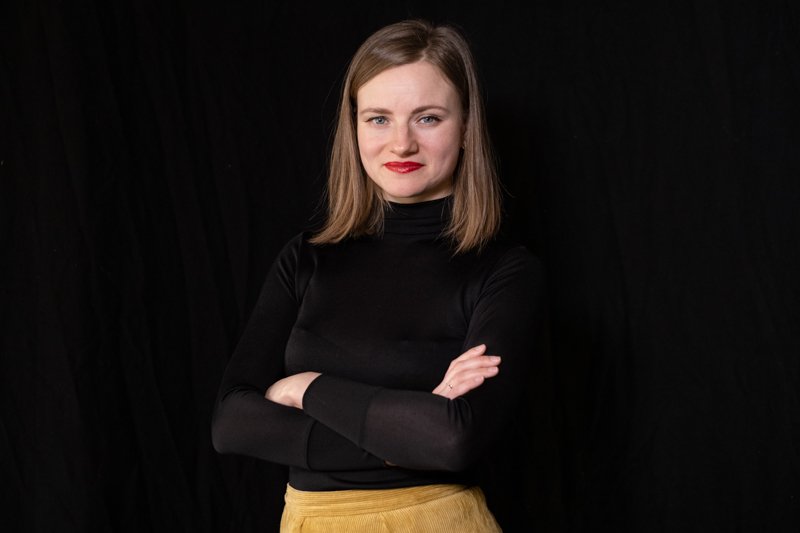
The annual Contemporary Art Festival Survival Kit will be held from September 4 to October 4, 2020, in Riga. The eleventh edition of the festival is titled Being Safe is Scary and will be curated by Katia Krupennikova.
Being Safe is Scary takes its title from a site-specific piece created in 2017 at the Fridericianum Museum in Kassel, Germany, by artist Banu Cennetoğlu for documenta 14. By both repositioning original letters and adding newly cast copies, Cennetoğlu altered the name on the building’s facade so that it read ‘BEINGSAFEISSCARY’. The phrase comes from graffiti on a wall of the National Technical University of Athens, noticed by Cennetoğlu around the time of the signing of the EU-Turkey refugee deal in March 2016. Violating international law on refugee protection, the contract forced every irregular entrant to Greece to be handed over to Turkey, causing reception facilities and temporary camps on the Greek islands to be turned into detention centres.
By taking this heavily charged title, Survival Kit 11 connects itself to the contemporary discourse on security and political violence. The notion of safety is charged with many different and contradictory political, social, economic, and psychological meanings. The idea of safety is typically associated with feelings of fear, anxiety, and insecurity, and these tend to be explained and justified by some imminent danger, enemy or threat. Safety and security are central to today’s political imagination. They are used to provide rationales for wars, nationalist agendas, racism, inequality, and other reactionary attitudes and policies.
Paradoxically, it is usually the most precarious and marginalized members of society that are classified as a threat. Those stigmatised due to their sexual identity, race, class, religion, or gender are viewed as threatening and dangerous elements. The figure of the migrant, utilized in populist discourse and reactionary movements, is one of the key phobic objects of our time. Refugees fleeing war zones are seen as barbarian invaders. Deteriorating economic conditions and competitive pressures feed this anxiety. In addition, people who organize protests and resistance against the status quo are often viewed as security threats to the state. If these are the “threat,” the question that must be asked is, who is the endangered subject that needs to be protected? And what are the other (the real) threats and dangers that are covered over and pacified by this construction of social dangers?
The politics of safety has many destabilizing and noxious effects: it legitimizes and normalizes extensive surveillance and self-surveillance, aggression, hatred, and insularity. Over the past twenty years surveillance has steadily infiltrated everyday life through, for example, the ubiquitous use of the Internet, social networks, and health tracking devices, as well as CCTV cameras in cities and new facial recognition technology. One of the major aspects of the safety question, especially in the wake of the global financial crisis of 2008, concerns economic anxiety. The politics of fear feeds upon precarity. Whole systems of domination are built upon the fierce illusion of protection, encouraging brutal competition and enforcing both financial and moral indebtedness.
Being Safe is Scary looks at the meaning of safety from an insurgent angle. It attempts to critically examine the blockages that inhibit individual and social capacities, posing the question: how much violence is embedded into the discourse of safety? The exhibition aims to explore how it might be possible to transform the suppositions that undergird this discourse, reconnecting safety to practices of love, intimacy, sharing, commonality, mutual support, attention, care for each other and for the environment, and social alliances.
The program of Survival Kit 11 will include both an international contemporary art exhibition and a rich public program with discussions, workshops and guided tours.
Katia Krupennikova is part of the curatorial team at V-A-C Foundation, Moscow, a docent for curatorial studies in the Fine Arts master’s program at HKU University of the Arts, Utrecht, and a fellow at BAK, basis voor actuele kunst, Utrecht. In 2019 she was a member of the core group at the Bergen Assembly 2019, Actually, The Dead Are Not Dead. Through her projects, Krupennikova attempts to transform existing social and political constructs into critical artistic models within which existing relations can be mimicked, criticized, distorted, displaced, and revised.
Contemporary Art Festival Survival Kit is the biggest contemporary art event in the Baltics, attracting more than 10,000 visitors every year. It arose in reaction to the economic crisis in Latvia with the aim of calling on society to respond to global changes and to consider various survival strategies. Each year, an important and socially relevant theme is selected for the festival. Empty buildings in Riga are used as venues, bringing our attention to their potential future development. Solvita Krese, director of the Latvian Center for Contemporary Art, is the founder of the festival and its creative director. Inga Lāce, the festival's long-time co-curator, is its curatorial advisor.
Survival Kit is organised by the Latvian Centre for Contemporary Art (LCCA), the largest institution of contemporary art in Latvia, which curates and produces contemporary art events of national and international scale. Since 1993, it has researched and curated contemporary art processes both in Latvia and abroad to provoke critical reflection on issues topical to contemporary society.